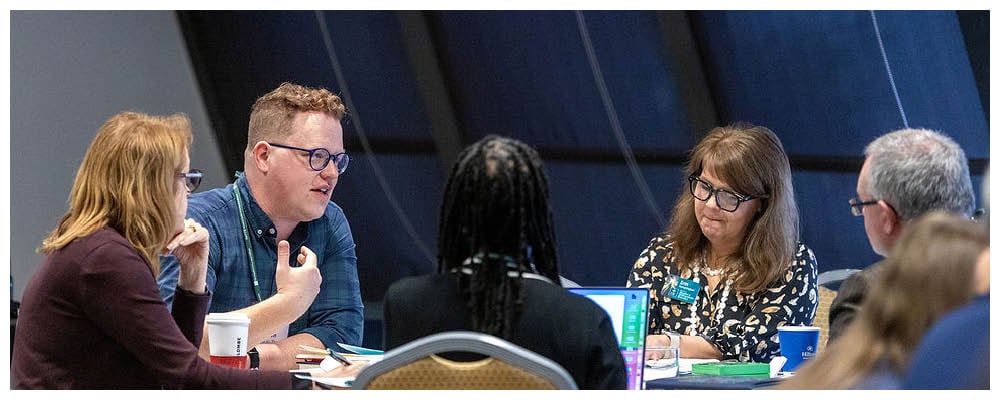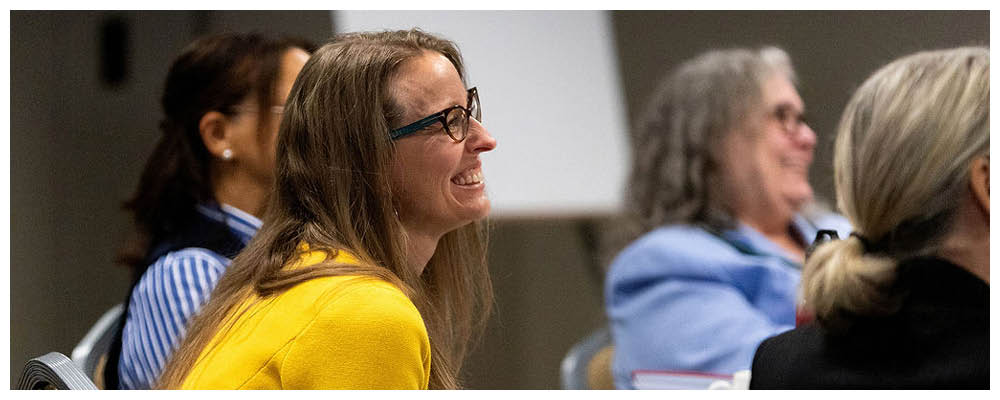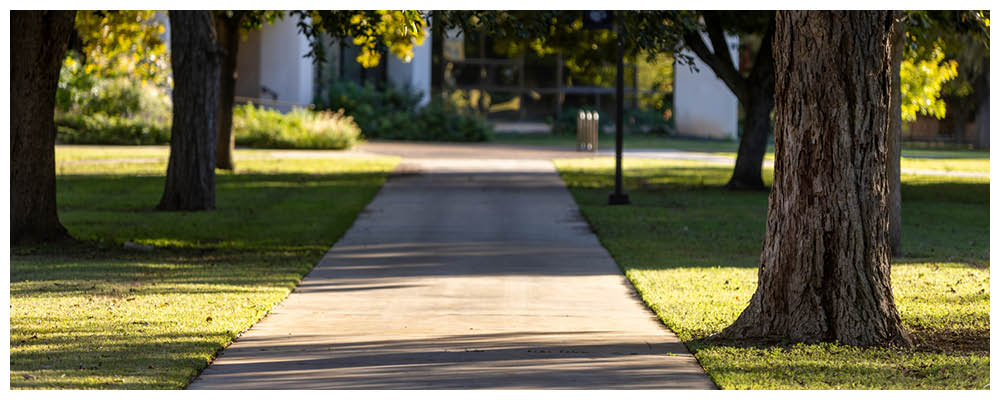The Role of a Consultant
Vocational exploration on campus is deeply organic and embedded in the history, culture, and people at a particular institution. It will be shaped by the student population and the gifts of the faculty and staff. This means that the community has to work out its own needs related to vocation and vocational discernment.
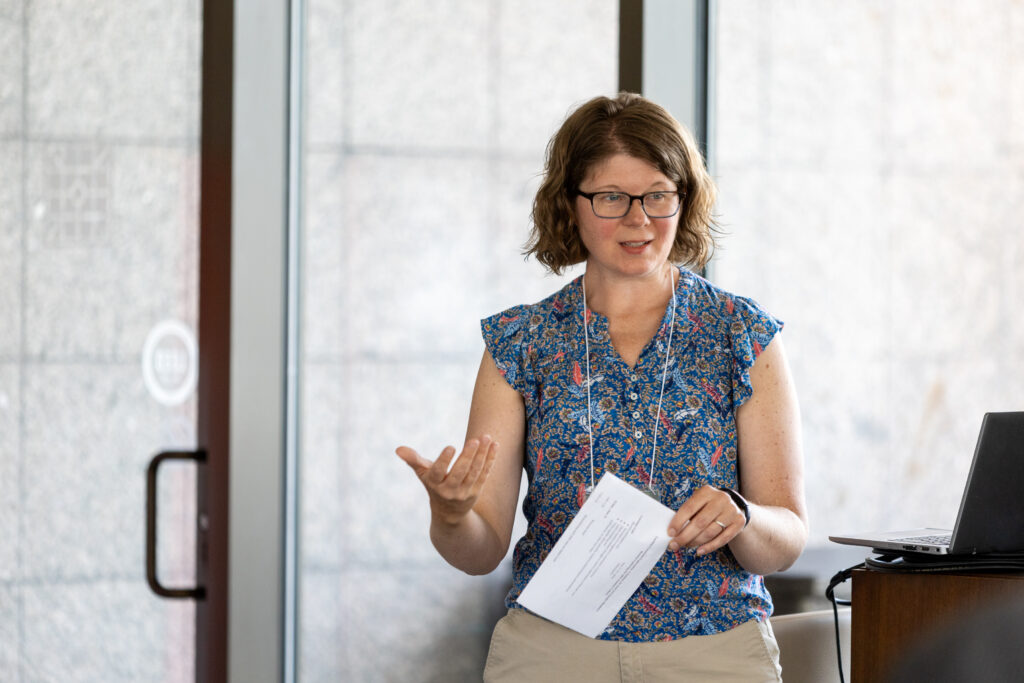
The role of a consultant is to:
- Point things out that they may not notice.
- Offer advice about things that have or have not worked in the past, grounded in their own experience when possible.
- Create productive stress and foster creative ideas by asking hard questions or simply slowing the questions down.
- Press engagement with questions and not allow answers to emerge from the conversation too quickly.
- Help institution to identify a clear action item or next step that they can take.
Process for a Consultation
- Institution applies for consultation through the website or in response to encouragement during the grant application process.
- Handoff to consultant to complete the planning for the visit. The consultant will receive a NetVUE profile of the institution that includes their recent NetVUE activity, the context and goals for the application, and a history of recent contact with the institution.
- Preparations for visit are the responsibility of the consultant. See the section on Before the Visit below for more details to help you with your planning.
- On-site consultation, which will likely involve a series of different meetings over the course of a day or a day and half, depending on whether it is a campus-wide conversation or a consultation focused on a particular project or division. Likely components of the visit include:
- Content delivery (workshop?)
- Time with students (lunch?)
- Time with president/provost/VPs
- Mid-level exploratory conversations
- High-level planning and strategy conversation
- Time with key program leaders
- Reporting should be completed within two weeks of the on-site visit. See the Reporting on the Visit section below for a NetVUE report template and additional instructions.
- Stipend and Reimbursement will be processed after the report is received.
Before the Visit
You will need to do some research and preparation before your on-site visit to the institution. Depending on how developed the consultation application was, it may take multiple calls with the institution before you have a fully developed schedule and plan for the visit. Preparations for the on-site visit will likely include:
- Make calls before visit (as needed)
- Do independent research about the institution, its mission, its ethos
- Do independent research into the people involved with the visit
- Make sure you understand the institution’s history with NetVUE
- Develop clarity on goals (and make recommendations about goals)
- Finalize schedule and lists of meeting participants
- Plan for what artifacts it would be helpful to bring to campus with you
Once you have started the planning and had a call with the institution, but sometime before everything is finalized, schedule a 30-minute strategy conversation with Rachael (rbaker@cic.edu) for support in finalizing your planning.
Advice for Calls with the Institution
Beyond the general items listed on the home page, here are some additional things to consider for your planning conversation with the institution:
Open with a broad question
This question should allow them to share what they care about. For example, you could find a connection to vocation in their mission statement and then reference the mission statement and ask them to help you understand who they are and what they hope to prepare their students to do.
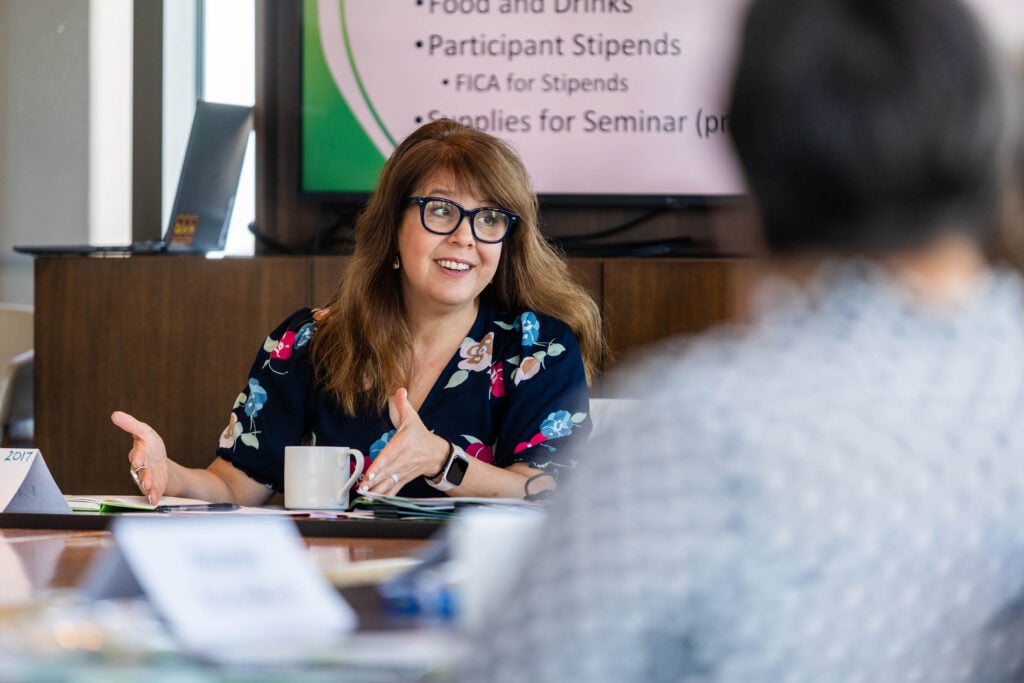
Review goals for the visit
Make sure you’re on the same page and know what you’re being asked to do. Ask questions like: what will success look like to you? Who on campus should receive information about what unfolds during the visit?
Gauge comfort level with vocation
Will people you are meeting with be familiar with NetVUE and vocation or should you plan to have a brief introduction ready? Would a pre-reading be helpful for the conversation? Note: if you want to include a pre-reading, keep it short and/or consider giving them a choice between two readings so they can help determine which one might resonate best on their campus.
Go over the schedule for the visit
This will be helpful to ensure it works for everyone. A good way to frame the conversation is: let’s make sure we’ve carved out the right amount of time to have the conversations that we need to have. Some questions you might need to ask:
- Who is already planning to be present as part of the consultation?
- What are the goals for each of the meetings that we have set up?
- Who else on campus should be part of the conversation or would have insight (either positive or negative) that would be useful?
- Is there anyone who can’t be present that I should try to talk to at a different time?
- Are people on same page or do you expect disagreement?
It is helpful here to note that neither answer is right nor wrong, but knowing helps you think about how to frame your questions. - Do we have at least one longer time block scheduled toward the end of the visit where decision makers can be present together for a more extended discussion?
- Are there breaks in the schedule that will give me time to process and prepare for the next meeting (if there are multiple discussions that need to unfold)?
- What should I know before I come? Are there any documents or programs that you would like me to be familiar with before the visit?
Preparing for the Visit
Consider whether any of the following suggestions might help you in your preparation for a consulting visit.

Explore the Vocation Matters blog
This will increase your familiarity with current conversations around relevant topics and may help you identify other experts you could consider consulting.

Learn more about the area for which you will be consulting
Consider talking to other program directors in the network to find out who knows something about the topic and which other campuses are already doing this work well. If you don’t know who to call, Rachael can help you identify possible conversation partners.
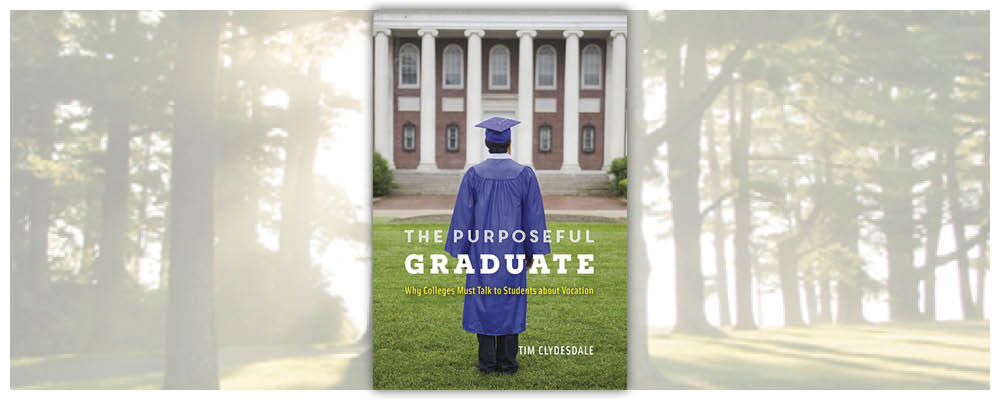
Read The Purposeful Graduate
Written by Tim Clydesdale, this book has helpful data and rich ideas about how different models for vocational engagement can work on various campuses.
Review the resources below to determine if any of the approaches or ideas might fit with the needs of your visit. It will be helpful to have a set of possible questions (whether the ones below or ones you generate on your own) prepared as conversation starters for your visit.
Reporting on the Visit
After the visit, we will ask you to complete two task before submitting your receipts and documentation for reimbursement. Normally, you should plan to complete these tasks within two weeks of the in-person visit.
- An internal summary to NetVUE about your visit including any thoughts you have about additional supports that might benefit the institution. After your visit, you will receive a survey link that will allow you to share this information. NetVUE staff will use this information to inform future steps but will not share it back directly with the institution.
- A draft consultation report to be shared back with the institution. The report should include a brief summary of conversations you had and themes that emerged during the conversations, recommendations you have for them that include clear next steps or action items for them, and any resources you identified during the visit that they should consider. Once you have received feedback from stakeholders at the institution, the report draft should be sent to Rachael (rbaker@cic.edu). Rachael will send the report back to the institution from NetVUE once it is finalized. A possible template for the report as well as two example reports are provided here.

The materials on this site have been curated by NetVUE to support NetVUE consultations and workshops. Please consult with Rachael Baker (rbaker@cic.edu) before sharing the resources outside the network.



